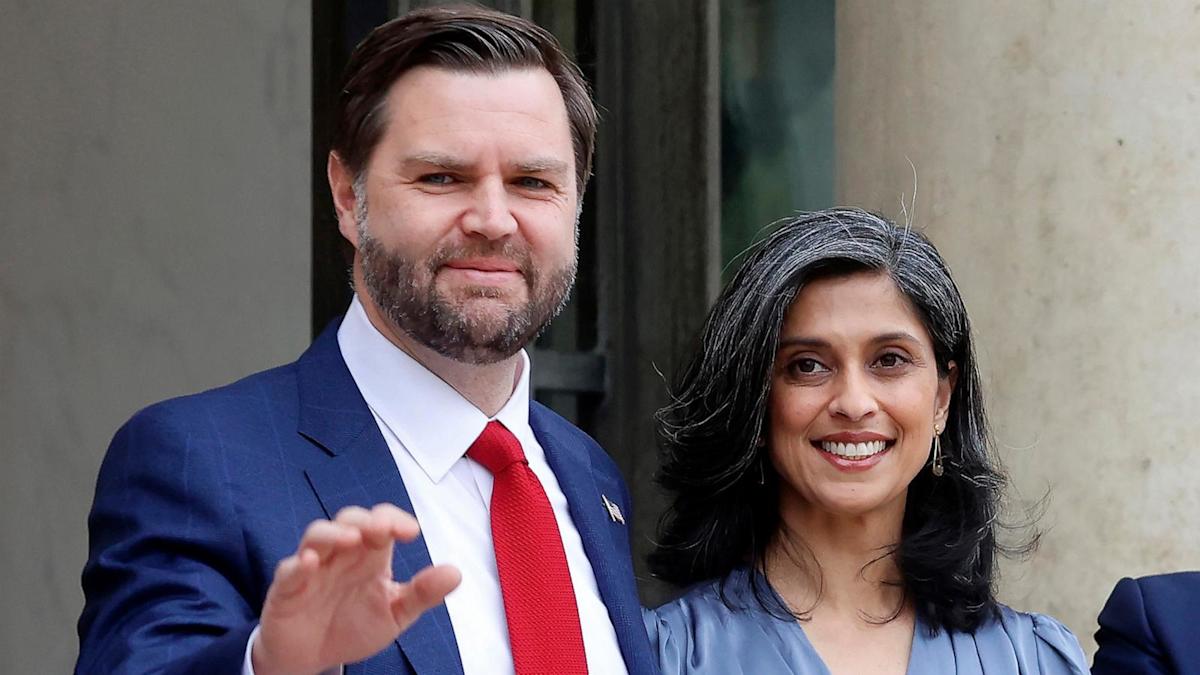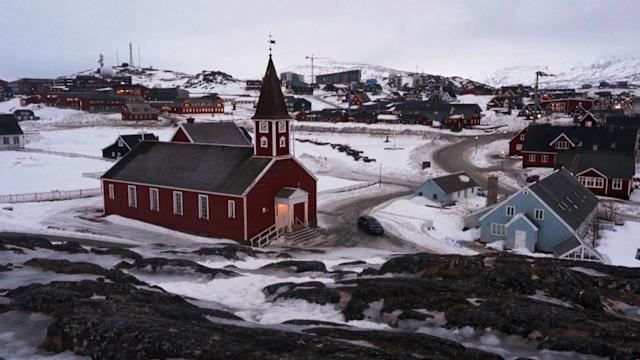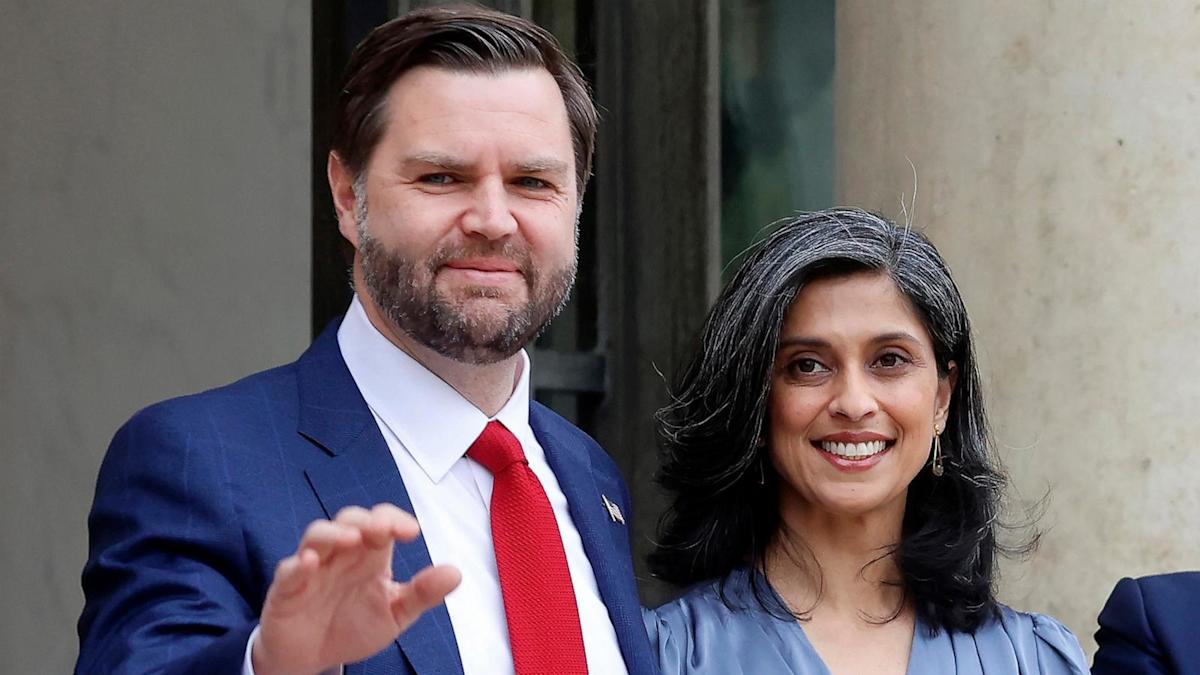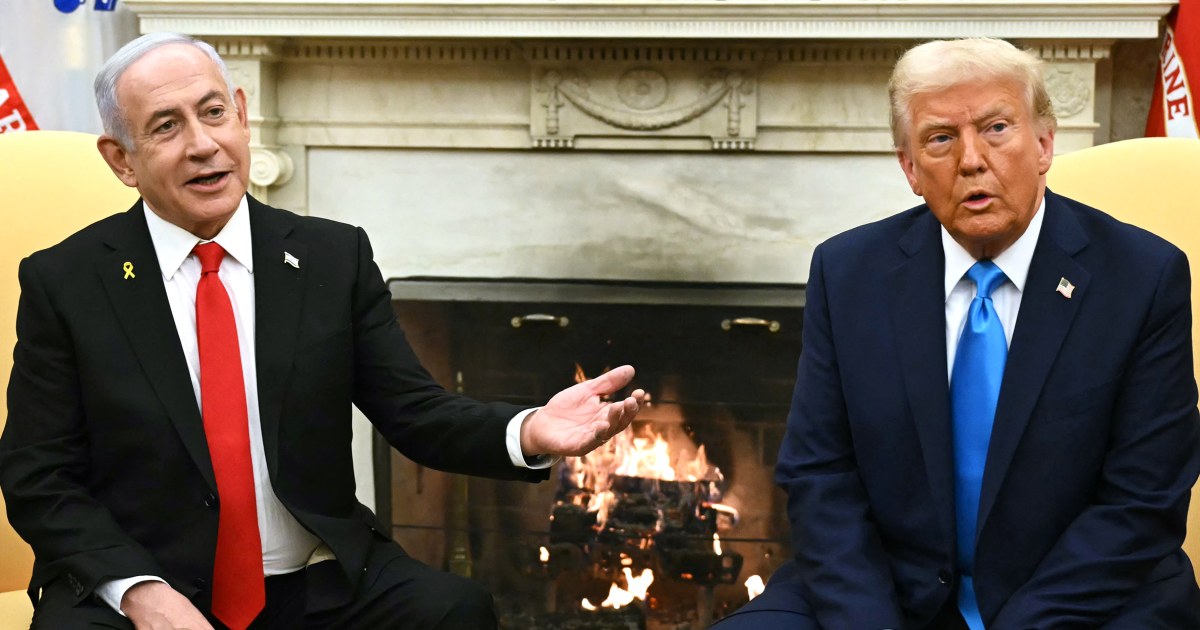“In a shocking turn of events, the Trump administration has made a surprise move to the icy shores of Greenland, as President Trump’s plans for a significant takeover of various government departments continue to send shockwaves through Washington D.C. Amidst this turmoil, the Trump administration has brought a high-profile entourage to the remote Danish territory – including JD Vance, a key ally of the President, and the Second Lady. What’s behind this unusual trip, and what does it signal for the future of the Trump administration? Read the latest live updates as we bring you the breaking news and analysis from Greenland and beyond.”
Trump’s Ambitions in Greenland

President Trump has repeatedly suggested that the U.S. should take over Greenland “one way or another” for national security purposes, emphasizing its importance as China and Russia ramp up activity in the Arctic.
“We need Greenland for national security and international security. So we’ll, I think, we’ll go as far as we have to go,” Trump told reporters on Wednesday.
“We need Greenland. And the world needs us to have Greenland, including Denmark. Denmark has to have us have Greenland. And, you know, we’ll see what happens. But if we don’t have Greenland, we can’t have great international security,” Trump said.

National Security Concerns
Trump’s repeated suggestions to take over Greenland for national security purposes have been met with opposition from officials in Greenland and Denmark.
“It’s not about the U.S. wanting to take over Greenland, it’s about the U.S. wanting to take over the Arctic,” said Danish Defence Minister Troels Lund Poulsen.

Vice President Vance’s Visit
Vice President JD Vance and second lady Usha Vance are making their way to Greenland on Friday morning for a scaled-back visit to the Pituffik Space Base.
The couple boarded Air Force Two shortly after 6 a.m. ET and were joined on the trip by National Security Advisor Mike Waltz, Energy Sec. Chris Wright and Sen. Mike Lee.
They are expected to arrive at approximately 11:45 a.m. ET.

Vice President Vance’s Remarks and Briefings
Vice President Vance is expected to deliver remarks and receive briefings at the Pituffik Space Base, according to a spokeswoman.
Greenland’s Response to Trump’s Overtures
Greenland’s response to Trump’s takeover talk has been met with opposition from officials in Greenland and Denmark.
Denmark’s Prime Minister Mette Frederiksen has criticized Trump’s statements, saying they are “aggressive American pressure” that is “not acceptable” for Greenland.
“Greenland is not for sale,” Frederiksen said.

Denmark’s Pushback
Denmark’s Defence Minister Troels Lund Poulsen has also criticized Trump’s statements, saying they are “not helpful” and “not in line with the principles of international cooperation and respect for the sovereignty of other countries.”
Greenland’s Prime Minister Klavs Overgaard has also spoken out against Trump’s takeover talk, saying it is “not acceptable” for Greenland to be taken over by another country.
“Greenland is a sovereign country and we will not be taken over by anyone,” Overgaard said.
Greenland’s Cultural Heritage and the Vance’s Visit
The planned visit to Greenland by the second lady, Usha Vance, initially focused on cultural exchange, aiming to learn about Greenland’s rich cultural heritage. The itinerary included attending a national dogsled race, a tradition deeply rooted in the region’s history and indigenous culture. However, under public scrutiny, the visit’s scope shifted to a more politically charged and strategic visit to the Pituffik Space Base, minimizing the cultural components of the original plan.
The dogsled race, a significant event in Greenland, symbolizes the community’s resilience and unity. Originally, it was anticipated that the visit would foster a better understanding of the local culture, promoting goodwill and closer ties between the United States and Greenland. Nevertheless, the scaled-down version of the visit has shifted the focus to strategic and security matters.
Implications of U.S. Takeover
Economic Opportunities
The potential for United States’ mining companies to develop resources in Greenland has sparked discussions on economic benefits. Energy Secretary Chris Wright highlighted the opportunity to bring jobs and economic advantages to the region. Greenland is rich in rare earth elements, uranium, and other minerals, strategic resources that could bolster economic development if leveraged effectively.
Autonomy and Sovereignty
Despite the economic potential, the notion of U.S. takeover or increased influence has elicited concerns about Greenland’s sovereignty and autonomy. Greenland, an autonomous territory of Denmark, faces the challenge of balancing economic interests with the preservation of its political independence. The local government and Danish authorities have voiced reservations about the implications of U.S. involvement, fearing it could undermine Greenland’s autonomous status and national interests.
Controversy and Scandal
Vance and Waltz’s Involvement
Vice President JD Vance and National Security Advisor Mike Waltz are at the center of a significant controversy regarding a conversation about the attack on Houthi rebels in Yemen. The conversation, which included unauthorized individuals, has raised questions about national security protocols and the handling of sensitive information within the administration. The scandal has overshadowed other aspects of the Greenland visit and brought into question the security and confidentiality of high-level discussions.
White House Confirmation
The White House has confirmed that National Security Advisor Mike Waltz will join Vice President JD Vance in his visit to Greenland. This confirmation comes amidst mounting scrutiny over Waltz’s involvement in the Houthi rebels scandal. The inclusion of Waltz in the trip has drawn further attention to the administration’s efforts to address security and strategic interests in the Arctic, despite the backdrop of controversy.
President Trump’s Stance and the Arctic Strategy
President Donald Trump has repeatedly emphasized the strategic importance of Greenland, suggesting that the United States should take over the territory for national security reasons. “We need Greenland for national security and international security,” Trump stated. The President’s rhetoric underscores a broader strategy aimed at countering growing Chinese and Russian activities in the Arctic, envisioning Greenland as a strategic asset in the region.
Trump’s statements have sparked both domestic and international debate, with critics arguing that the U.S. should respect Greenland’s autonomy and Denmark’s sovereignty. The President’s approach to the Arctic strategy reflects a hardline stance, attempting to secure U.S. interests in the face of increasing global competition.
Economic and Strategic Interests
Energy Secretary Chris Wright’s remarks underscored potential economic opportunities for U.S. mining companies in Greenland. Wright highlighted the presence of rare earth minerals and other natural resources, which could attract significant U.S. investment. The development of these resources is seen as a pathway to job creation and economic growth, aligning with the Trump administration’s push for economic expansion and national security.
However, this viewpoint clashes with the concerns over sovereignty. Greenland, an autonomous territory under Denmark, has a unique status that complicates any discussion of U.S. ownership or increased influence. The region’s strategic location and natural resources make it a prime target for major powers, but any significant change in its governance structure would require careful negotiations and respect for Greenland’s and Denmark’s sovereignty.
Legal and Political Challenges
The Trump administration’s proposal to purchase Greenland has reignited debates on the legality and political feasibility of such a move. Legal experts have pointed out that the U.S. President does not have the authority to unilaterally take over a territory that is part of a sovereign nation. The purchase of Greenland would require extensive negotiations and likely a treaty, and it is a topic of significant international law and diplomacy.
Greenlandic leaders have expressed reservations about the U.S. interest in the region, fearing that increased U.S. presence could erode Greenland’s autonomy and national identity. The Danish government has also been critical, advocating for maintaining the current territorial arrangement and rejecting the idea of a U.S. takeover. The Danish Defense Minister, Troels Lund Poulsen, has vehemently criticized Trump’s statements, describing them as “aggressive American pressure.” This diplomatic tension reflects the complex geopolitical dynamics in the Arctic region.
USAID and the Controversy Surrounding Its Future
Separately, the administration’s attempts to restructure or dismantle the U.S. Agency for International Development (USAID) have sparked legal and political controversies. According to sources, the administration is considering significant changes to USAID, possibly transferring its functions to the State Department. This move is not without legal hurdles, as USAID was established through both executive order and congressional legislation, making its restructuring a complex legal process.
Secretary of State Marco Rubio, in a letter to senators, has proposed a reorganization that would abolish certain USAID missions while transferring others to the State Department. Legal experts, such as Richard Briffault from Columbia Law School, argue that such a move would require congressional approval, and unilateral actions by the executive branch could be challenged in court. The controversy surrounding USAID’s restructuring highlights the administration’s broader strategy to streamline and consolidate U.S. foreign aid programs, a move that could have profound implications for international relations and aid distribution.
Security and Strategic Interests
National Security Advisor Mike Waltz
The inclusion of National Security Advisor Mike Waltz in the delegation visiting Greenland underscores the strategic importance of the trip. Waltz’s presence highlights the administration’s focus on national security and Arctic strategy. However, his involvement in the Houthi rebels scandal has added a layer of complexity to the mission. The scandal has sparked debates on the administration’s approach to international security and the handling of sensitive information.
Strategic Concerns
Greenland’s strategic location in the Arctic Region has always made it a focal point for various global powers. The potential for U.S. control of Greenland could significantly enhance the U.S.’s strategic position, providing a new base for military and intelligence operations. This strategic interest is not solely economic but is also deeply rooted in the geopolitical landscape, with the Arctic becoming a critical area of contention among global superpowers.
Expert Analysis and Perspectives
Legal scholars and international relations experts have expressed mixed views on the potential for U.S. takeover of Greenland. Professors and legal experts emphasize the legal complexities involved, noting that any attempt to change Greenland’s current status would require extensive negotiations and international cooperation. Experts also highlight the need for a careful and transparent process to avoid escalating tensions with Denmark and Greenland.
Environmental and economic analysts have discussed the potential benefits and drawbacks of U.S. involvement in Greenland. While the economic opportunities are significant, the environmental impacts and the socio-political implications for Greenlanders and the broader international community must be carefully weighed. The potential for job creation and economic development must be balanced against the preservation of Greenland’s unique cultural and environmental landscape.
Unionjournalism’s sources indicate that the administration’s actions regarding Greenland reflect broader geopolitical strategies, aiming to secure the U.S. position in the Arctic. However, the administration’s handling of the USAID restructuring and the controversy surrounding the Houthi rebel scandal highlight the complex dynamics within the executive branch and the broader implications for U.S. foreign policy.
Conclusion
As the Trump administration continues to make headlines, a recent visit by JD Vance and Second Lady Karen Pence to Greenland has sparked concerns about the potential implications of a U.S. takeover of the autonomous territory. According to NBC News, the visit comes as the Trump administration has been exploring ways to strengthen ties with Greenland, with some speculating that the goal may be to establish a military base on the island. The visit also coincides with reports that the administration is considering a possible deal to purchase Greenland, which could have significant consequences for the island’s sovereignty and the global balance of power.
The significance of this development cannot be overstated. A U.S. takeover of Greenland would be a major shift in the global landscape, with far-reaching implications for international relations and global governance. The potential for a U.S. military base on the island could also raise concerns about the militarization of the Arctic region, which could have unintended consequences for regional stability and security. Furthermore, the visit by JD Vance and Second Lady Pence suggests that the Trump administration is willing to take bold action to achieve its goals, even if it means disregarding international norms and conventions.
As the situation continues to unfold, one thing is clear: the fate of Greenland hangs in the balance. The international community is watching closely to see how events will play out, and the implications of a U.S. takeover could be felt far beyond the shores of this small island nation. The question on everyone’s mind is: what does this mean for the future of global governance and the rule of law? Will the Trump administration’s aggressive approach to foreign policy set a new standard for international relations, or will it be met with resistance and pushback from the global community? Only time will tell, but one thing is certain: the world is on edge, waiting to see what’s next.
